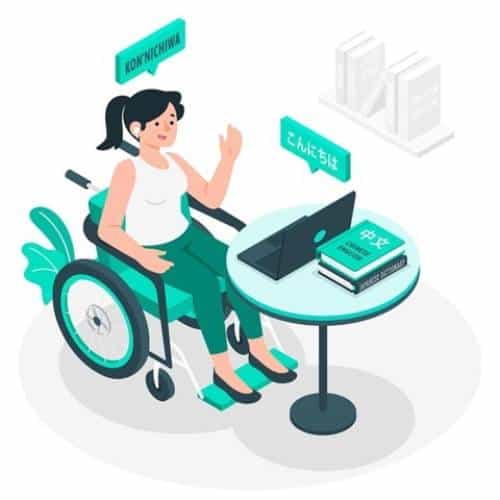Although American Sign Language (ASL) interpreters play a crucial role for the people and especially for the whole deaf community but the advancements in technology make these video services a viable option. Therefore, hospitals need to understand ASL video interpretation services to comply with federal laws. We all know that communicating with deaf or hard of hearing patients is crucial hence healthcare institutions must understand the needs of people and allow them to know the type of care provided to them. ASL video interpretation services also provide certified translators to overcome the barriers of language and cultural gaps. These experts have a deep insight of the deaf culture and the various forms of visual language that people use. The recent Covid-1p made us see an increase in the implementation of ASL video interpretation services and we want to ensure that anyone who uses ASL interpreters identifies the applicable laws.
Moreover, healthcare institutes and hospitals often report the use of ASL video interpretation services. However, the key is to know that on-site translation is required in many situations therefore they can request an interpreter to make an appointment in advance. Without the ability to communicate, the deaf community is in a desperate situation and their healthcare needs depend on their ability to understand only sentence fragments. These ASL interpreters can make the life decisions for the hearing impaired in the hospital.

The Need of ASL and Medical Interpreters
With the increasing demand for the use of telemedicine services and healthcare needs, ASL video interpretation services have proven to be a safe and effective way to communicate with deaf people. When using VRI services in a hospital, it is important to have a certified medical interpreter as they can ensure that your video interpreter is professionally trained and understands medical terminology and complies with the ethical guidelines of interpretation.
Moreover, ASL video interpretation services enable healthcare organizations to quickly respond to the needs of deaf people with limited English proficiency. They provide quick response in American Sign and Spoken Language services. When communication is urgent, video interpretations can obtain a response from a certified medical interpreter within seconds.
The Application and Significance of ASL Interpretation
There’s no denying the fact that unplanned situations usually require the use of ASL interpreters to meet the needs of patients. Moreover, visual aids in Video Remote Interpretation (VRI) services can provide greater accuracy and bridges the gap between telephone and on-site interpretations. These services can help you optimize your interpretation budget while increasing the benefits of medical support. When looking for a ASL interpreter, you should be sure to ask if there is the need for minimum hours. You can use VRI tools such as Zoom to provide effective communication without additional equipment in just a few seconds.
The increasing linguistic diversity throughout the world makes ASL video interpretation services a significant part of patient care. In addition, the effective communication between doctor and patient is basically the core of positive health outcomes. A trained ASL interpreter can have a positive impact on better clinical care and brings in improved quality of life. This may result in fewer communication issues, improved well-being and a better knowledge of diagnosis.
Effective Communication and Professional Healthcare
Many deaf people around the world face inequalities in access to healthcare whether it’s about getting a CT scan done or going to see a family doctor. The presence of ASL video interpretation services is associated with better clinical care with positive experiences in healthcare. Some hard of hearing patients or deaf individuals prefer ASL video interpretation services to get the treatment because it allows them to attend appointments in a more relaxing environment.
At Languagers, we provide the medical interpretation services with professional support and hence we always ensure efficient and accurate care for deaf people with disabilities. By grasping the unique preferences of deaf people, Languagers ensure that we provide inclusive care to them without any discrimination or prejudice.



















